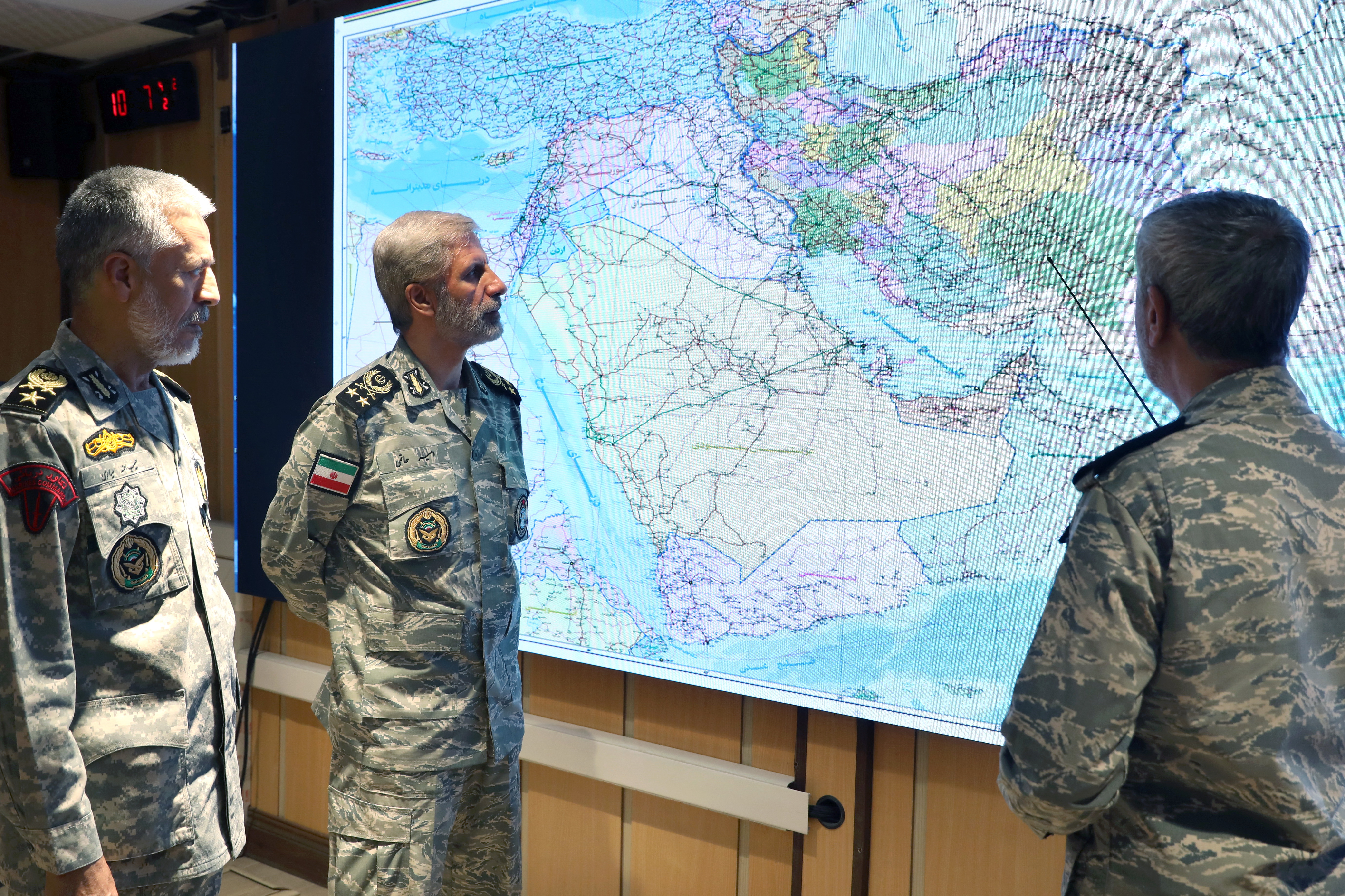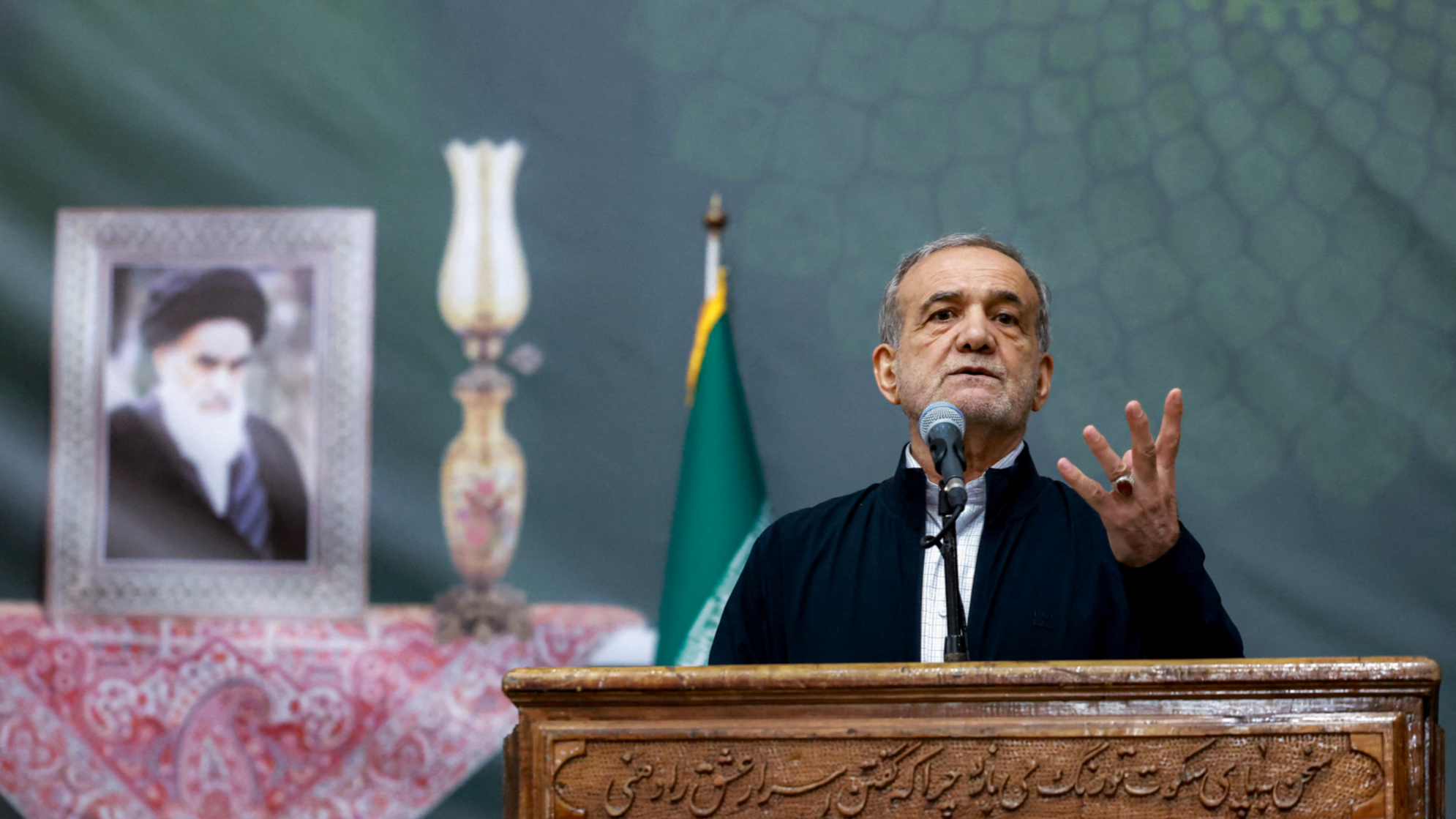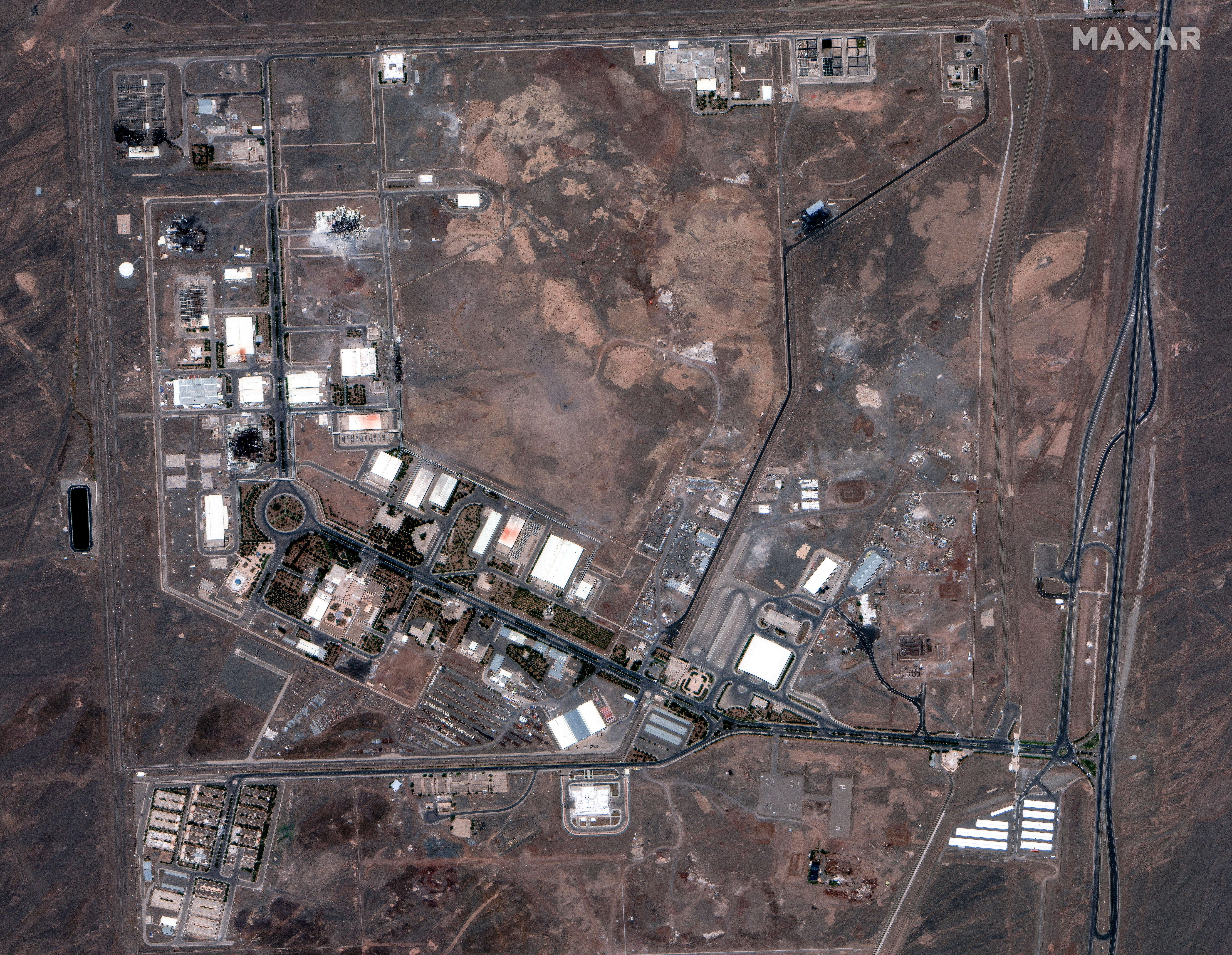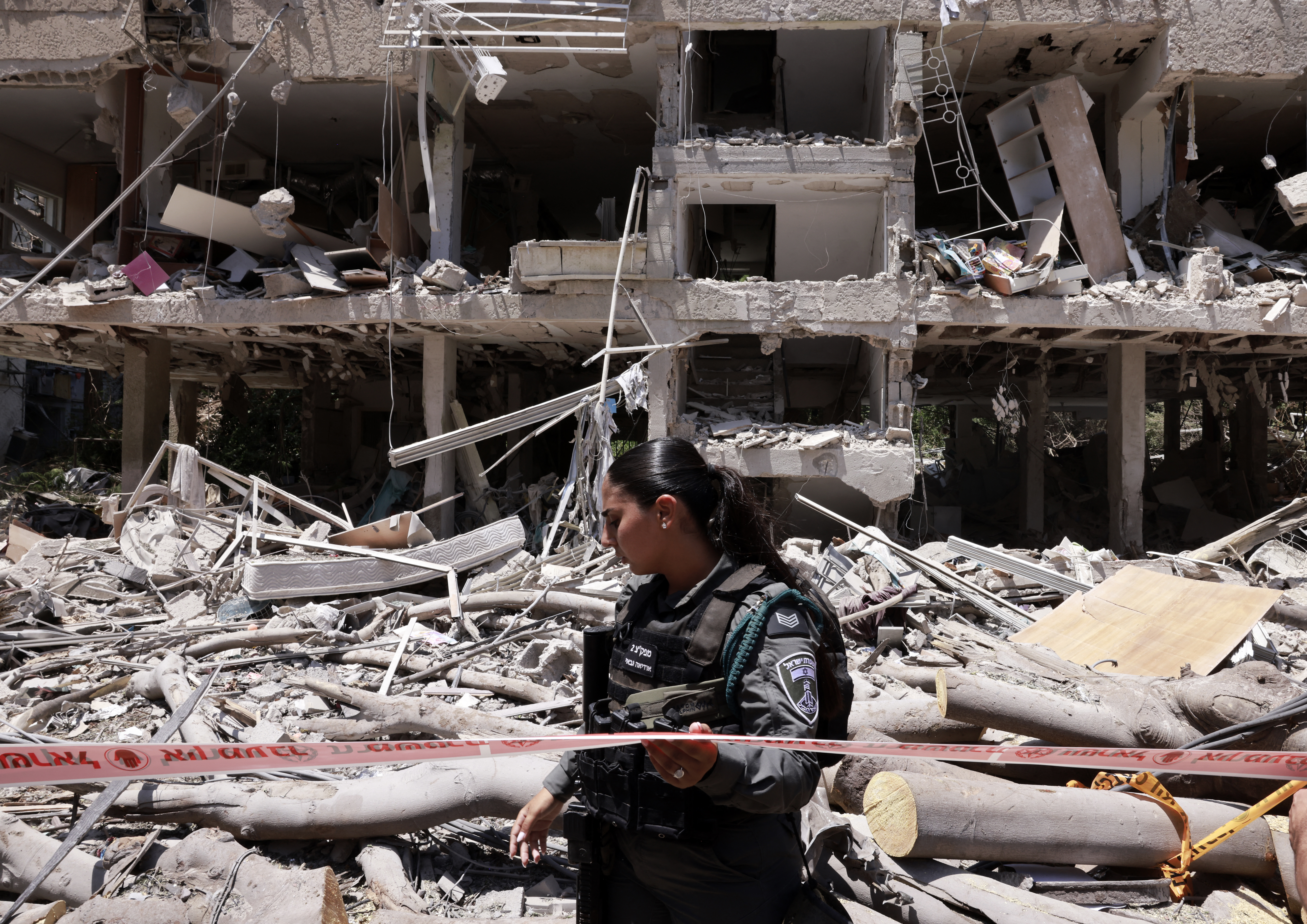
TEHERAN / JERUSALEM / VIENNA / MOSCOW / UNITED NATIONS / ALGIERS / PYONGYANG - Iran has launched a fresh wave of missile and drone attacks on Israel, using solid- and liquid-fuel missiles and special tactics to render Israel's air defense ineffective, state-run IRIB TV reported on Monday.
The attacks came after Israel conducted a wave of airstrikes on Iran early Monday, shortly after intercepting a missile fired from Iran.
The Israeli Air Force targeted what it described as "military infrastructure sites" in Iran's Kermanshah province, striking surface-to-surface missile launch and storage facilities, the military said in a statement. More than 15 warplanes participated in the operation.
Israeli Prime Minister Benjamin Netanyahu had said on Sunday that Israel is "very close" to completing its objectives after inflicting major damage to Iran's nuclear facilities and missile programs, The Times of Israel reported.
In a pre-recorded press conference, Netanyahu revealed that Israel is tracking 400 kg of Iran's 60 percent enriched uranium. He claimed that Israel has "interesting intel" on its whereabouts but declined to go into detail.
ALSO READ: IMF’s Georgieva warns of broader risks from US strikes on Iran
He ruled out a war of attrition but said operations will not stop until all goals are met.
The Israeli strikes came shortly after Iran fired a missile at Israel before dawn and triggered air raid sirens across much of the country. The Israeli military said the missile was shot down, causing no casualties or damage.
The Iranian attack followed US President Donald Trump's suggestion of a possible regime change in Iran, as US bombers and submarines carried out heavy strikes on Iranian nuclear facilities in Fordow, Natanz, and Isfahan.

Also on Sunday, Iranian President Masoud Pezeshkian said that the United States must "receive the response to its aggression," following US strikes on Iranian nuclear facilities.
Pezeshkian made the remarks during a phone call with French President Emmanuel Macron, according to a statement from his office. In response to Macron's call for restraint, Pezeshkian said the United States must face consequences for its attacks on Iran.
He described the US strikes as a "clear symbol of its insincerity and the baselessness of its claims about favoring dialogue and seeking peace."
ALSO READ: Teheran says ‘reserves all options’ to retaliate against US attacks
Despite this, Pezeshkian stressed Iran's continued commitment to diplomacy with Europe, saying, "We have always announced our readiness for dialogue and interaction with Europe and have never abandoned the path of diplomacy, as we maintain that nobody would suffer any harm from dialogue."
Macron reiterated France's willingness to pursue negotiations with Iran and said Paris would continue efforts to halt the conflict and restore stability, according to the statement.
‘Non-proliferation regime could collapse’
International Atomic Energy Agency (IAEA) Director General Rafael Grossi warned on Sunday that the international nuclear non-proliferation regime could crumble unless diplomacy returns, following Saturday's US strikes on Iranian nuclear sites.
"The nuclear non-proliferation regime that has underpinned international security for more than half a century is on the line. The dramatic events in Iran have become even more serious with last night's bombardments and the potential widening of the conflict," Grossi told an emergency meeting of the Security Council.

"We have a window of opportunity to return to dialogue and diplomacy. If that window closes, violence and destruction could reach unthinkable levels, and the global non-proliferation regime as we know it could crumble and fall," he warned.
On the destruction of the US strikes, Grossi said there was damage to structures but no radioactive releases.
Craters are visible at the Fordow site, Iran's main location for enriching uranium to 60 percent, indicating the use by the United States of ground-penetrating munitions. At this time, no one, including the IAEA, is in a position to assess the underground damage at Fordow, he said.
ALSO READ: Mideast tensions escalate as US attacks Iran's nuclear sites
At the Isfahan nuclear site, additional buildings were hit, with the United States confirming their use of cruise missiles. Affected buildings include some related to the uranium conversion process. Also at this site, entrances to tunnels used for the storage of enriched material appear to have been hit, he said.
At the Natanz enrichment site, the Fuel Enrichment Plant has been hit again, with the United States confirming that it used ground-penetrating munitions, he said.
Iran has informed the IAEA there has been no increase in off-site radiation levels at the three sites, said Grossi.

He said his agency has consistently underlined that armed attacks on nuclear facilities should never take place and could result in radioactive releases with grave consequences within and beyond the boundaries of the state that has been attacked. He again called for maximum restraint.
Russia condemns US attacks
Russia strongly condemns the strikes launched by the United States against a number of nuclear facilities in Iran, the Russian foreign ministry said in a statement on Sunday.
It stated that the irresponsible decision to carry out missile and bomb strikes against the territory of a sovereign state -- no matter what arguments are invoked -- grossly violates international law, the UN Charter, and UN Security Council resolutions.
READ MORE: Chinese UN envoy condemns US strikes on Iran nuke sites
It is particularly concerning that the strikes were carried out by a permanent member of the UN Security Council, the statement said.
"It is already obvious that a dangerous escalation has begun, threatening to further undermine regional and global security," said the statement, adding that the risk of conflict expansion in the Middle East, already engulfed by multiple crises, has significantly increased.
‘Rathole of retaliation’
UN Secretary-General Antonio Guterres on Sunday warned of "a rathole of retaliation" in the wake of US strikes on Iranian nuclear sites.
The US bombing of Iranian nuclear facilities marks a perilous turn in a region that is already reeling, Guterres told an emergency meeting of the UN Security Council.
"From the outset of the (Israeli-Iranian) crisis, I have repeatedly condemned any military escalation in the Middle East. The people of the region cannot endure another cycle of destruction. And yet, we now risk descending into a rathole of retaliation after retaliation," he warned.
READ MORE: Trump says it's hard to ask Israel to stop Iran strikes
To avoid further escalation, diplomacy must prevail, civilians must be protected, and safe maritime navigation must be guaranteed, Guterres said.
"We must act -- immediately and decisively -- to halt the fighting and return to serious, sustained negotiations on the Iran nuclear program," he urged.
Guterres called for a credible, comprehensive and verifiable solution to restore trust, including inspections by the IAEA.
'Unprecedented danger'
Algeria on Sunday strongly condemned the latest US airstrikes on Iranian nuclear facilities, warning of severe consequences for regional stability, according to a statement issued by the Algerian Foreign Ministry.
Algeria expressed "deep concern" and "profound regret" over the escalation following the bombing of Iranian nuclear facilities, describing the military intervention as "blatant disregard of repeated international calls for a ceasefire and diplomatic negotiations."
Algeria further warned that this escalation risks plunging the entire region into "unprecedented danger with unpredictable consequences," calling for a peaceful resolution to the Iranian nuclear issue.
'Censure US, Israeli acts'
The Democratic People's Republic of Korea on Monday strongly condemned the US military strike against Iran's nuclear facilities, the official Korean Central News Agency reported.
The attack "severely violated the UN Charter with respect for sovereignty and non-interference in internal affairs as the basic principle and norms of other international laws, and violently trampled down the territorial integrity and security interests of a sovereign state," said the report.
Israel and the United States, under the pretext of the so-called "peacekeeping" and "threat removal," further aggravated the tension in the Middle East and caused serious negative consequences for the global security structure by demonstrating their physical strength, it said.
The international community should unanimously censure and reject the US and Israel's confrontational acts, it added.


